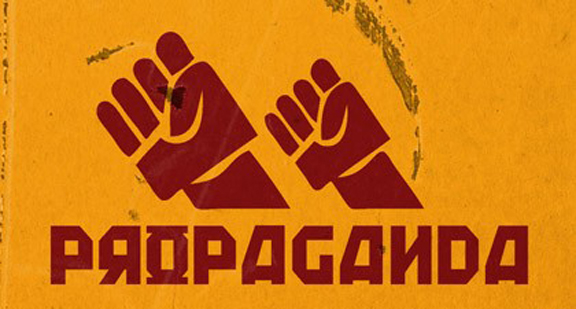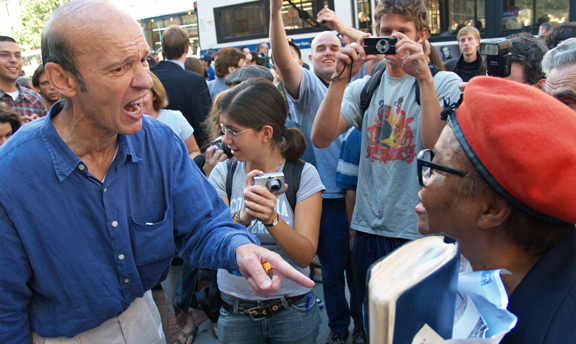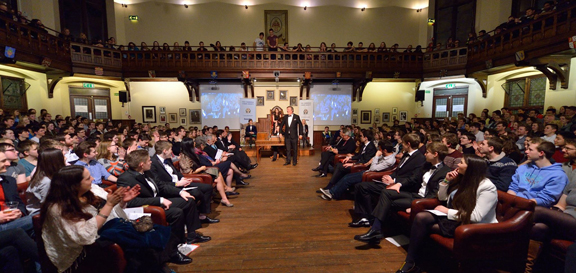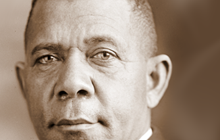Words matter. They can change the world, or they can deceive the world. All too often in our day they are used to sell a narrative or support an agenda rather than to speak truth. Before looking at a an example of writing the truth, it must first be established how to tell if something is the truth. The following article is a good summary of how to do just that.
Truth or Propaganda? by Stella Morabito (Source)
If you can’t ask a candid question of a professor or fellow students without fear of retribution, you aren’t in a place of learning. That’s because real knowledge can be fueled only by free and open inquiry.
The process of learning for the high school or college student is the same as it is for a child: a give-and-take with others through which we verify reality by asking straightforward questions of varying complexity. The more open and free the exchange, the greater our knowledge and awareness of what is true.
Political correctness, however, is by nature deceptive and psychologically manipulative. It therefore serves as a major roadblock to inquiry, as do all other forms of propaganda.
Understanding Propaganda
We need to fight propaganda constantly, fearlessly, and shrewdly if we want to preserve our ability to learn and to think independently. Deception is the key ingredient of propaganda, but it is always seasoned with the lure of truth, or half-truths.
But first we have to learn to recognize propaganda. I define it this way: propaganda is the process of psychological manipulation by which power elites—politicians, academics, marketers, media players, celebrities, and so on—condition people to adapt to an agenda.
Propagandists deploy this process in three basic stages. First, they lay the groundwork for conditioning by impeding independence and clarity of thought. Second, as many people become more conditioned and isolated from each other, propagandists can reshape and mobilize them into masses who agitate for the agenda. The final stage is the enforcement of conformity across the board. In the end, propaganda amounts to mind hacking. (You can read more about this in my Federalist articles “How to Escape the Age of Mass Delusion” and “Ten Resources to Hack Proof Your Mind.”)
The common denominator of agenda items enforced by political correctness—from Common Core to gender politics to climate change and down the list—ends up being the consolidation of state power, or the power of elites.
Ten Questions to Help You Distinguish Propaganda from Truth
With rare exceptions, college campuses have become propaganda-saturated environments. But even off-campus, there is little relief from the climate of political correctness that stunts independent thought. Hollywood, the media, and the Internet are all heavy movers of propaganda.
In response I’ve compiled a list to help you sort fact from fiction whenever you are stumped by a questionable assertion or an uneasy situation—whether in the classroom, on social media, in your neighborhood, or at a party. Stop and ask yourself the following. Any “yes” answer means you are being manipulated by propaganda.
#1
Is your natural curiosity being suppressed? Whether the debate is about global warming or gender-neutral bathrooms, or anything else, if you have a nagging question or concern that is being cut off or shouted down, this is a clear sign you are being force-fed propaganda.
#2
Are you being threatened with slurs or labels? Might you risk being called “bigot” or “hater” or “flat-earther” or worse if you simply express a personal preference? If so, you are in propaganda territory. Name-calling serves two purposes for propagandists: (1) it shuts down free inquiry and debate, and (2) it psychologically manipulates you through a fear of being “tarred-and-feathered.”
#3
Do you feel you will be ostracized if you ask a question or express a politically incorrect view? The threat of ostracism is probably the oldest manipulative trick in aid of mind control. We are hardwired from infancy to avoid social isolation, which is why peer pressure is such a powerful force. This is also why solitary confinement is among the most dreaded of punishments. Political correctness depends on inciting the primal human fear of loneliness.
#4
Do you notice a “herd effect” as people shift their opinions to adapt to a politically correct opinion? When others don’t feel comfortable having a real conversation with you, you’re living in a propaganda stew. Perhaps you see a classmate whom you were able to chat with earlier in the year but who has “evolved” with the program to the point that you can’t talk earnestly anymore. Maybe you notice how another classmate is excessively tentative in her speech and tone, a precautionary measure to avoid saying something “unacceptable.”
#5
Are you being pigeonholed as a result of your question or opinion? Today’s propaganda often deconstructs your humanity by way of a scorecard that rates your level of privilege or oppression, based on skin color, class, family make-up, sexuality, “gender identity,” and a whole host of “intersectionality” components. Sadly, officials who promote “diversity and equality” are trained to ignore your humanity as an integrated individual so they can view you as a composite of bits and pieces of identity politics.
#6
Do you sense that if you express ideas freely, you will be labeled a nutcase? Do you sense relational aggression at play? Gaslighting is a form of psychological abuse that is used by wife beaters as well as cult leaders. It is a natural byproduct of unchecked propaganda, too. The tactics of gaslighting are basically twofold. First, to get you to doubt your sanity, or at least get you to think you are utterly alone in your perceptions of the world. (Consider the constant use of the term phobia by today’s propagandists.) Second, gaslighters make a point of regulating and controlling the personal relationships of their victims so they feel even more isolated and dependent.
#7
Will others be “triggered” by your opinion? If so, you are likely in a propaganda pocket: an “inquiry-free zone.” Emotional maturity has a lot to do with an individual’s ability to adapt. But propagandists see such maturity as a threat to their agendas. In fact, anything that enhances friendship or real understanding gets in the way of propaganda. Those who are “triggered” by a different opinion—who shut down emotionally by it—tend to be both the victims and the purveyors of propaganda.
#8
Are you expected to trade in reality to prop up somebody’s illusion? One common example is the requirement that you adhere to pronoun protocols, even those that insist you refer to an individual with the plural pronouns they and them. This is a prime example of propaganda messing with your mind by messing with everybody’s language. No common language, no common reality, no communication. People end up even more isolated, unmoored in alternative realities that destabilize a sense of self.
#9
Are you tempted to self-censor to avoid social punishment? Or are you tempted to falsify what you believe to gain social rewards? These two reactions build something called a “spiral of silence” that facilitates propaganda by creating the illusion of an opinion shift. It separates and isolates those who hold the politically incorrect opinion by inducing them—through fear of social rejection—to engage in self-censorship or to pretend to be on board with the program.
#10
Do you sometimes feel like you’re stuck in a cult? Unchecked propaganda is cultlike in nature because it suppresses free inquiry and pushes utter conformity of thought. It also incorporates a lot of features of cults, including the use of deception, psychological manipulation, behavior modification, mind-hacking, divide-and-conquer tactics, social polarization, relational aggression, gaslighting, language control, and much more.
Perhaps the best way of fighting propaganda is one friendly conversation at a time. As Jacques Ellul wrote in his classic 1965 book Propaganda: The Formation of Men’s Attitudes, “Propaganda ends where simple dialogue begins.”









_17422494921.png )

